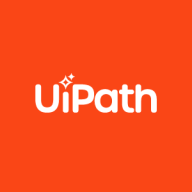

UiPath Platform and Appian RPA are key players in robotic process automation. UiPath has an advantage in cost and support, while Appian RPA offers advanced features.
Features: UiPath offers robust automation, user-friendly design, and broad integrations. Appian RPA provides comprehensive workflow management, intelligent automation tools, and supports complex processes.
Ease of Deployment and Customer Service: UiPath generally provides a smoother deployment experience and comprehensive support, making implementation simpler. Appian RPA involves more complex setups but offers strong technical support to address these challenges.
Pricing and ROI: UiPath typically offers competitive pricing and favorable ROI, making it attractive for cost-conscious buyers. Appian RPA, with potentially higher setup costs, delivers substantial ROI through advanced features, appealing to those investing in long-term gains.
| Product | Market Share (%) |
|---|---|
| UiPath Platform | 12.9% |
| Appian RPA | 0.9% |
| Other | 86.2% |

| Company Size | Count |
|---|---|
| Small Business | 249 |
| Midsize Enterprise | 143 |
| Large Enterprise | 668 |
Appian RPA seamlessly integrates with the comprehensive Appian Platform for process automation, offering an end-to-end solution for streamlining workflows and automating repetitive tasks. With features like the Universal RPA Task Recorder and the Low-code Appian Process Modeler, users can quickly build and deploy bots without extensive coding knowledge. Appian RPA ensures governance, dynamic exception handling, secure deployment, and scalability, enabling organizations to maintain automation integrity while efficiently managing digital workers across various environments. By leveraging Appian RPA alongside Appian IDP, AI, business rules, and API integrations, businesses can achieve seamless process automation and drive value quickly, optimizing workflows between humans, digital workers, and systems. With Appian's unified platform for change, organizations can accelerate digital innovation, enhance business efficiency, and create end-to-end automation solutions tailored to their specific needs.
UiPath Platform is appreciated for its user-friendly interface and extensive automation capabilities, offering seamless integration with diverse applications. Its intuitive drag-and-drop functionality enables users to design efficient workflows with minimal technical expertise.
UiPath Platform delivers a robust set of features that enhance automation and productivity. With components like Orchestrator, task management is optimized, facilitating better scalability. Users benefit from advanced AI and document understanding tools, boosting data handling accuracy and reducing errors. Despite its strengths, UiPath faces challenges with upgrading processes, AI enhancements, and user documentation. Integration and selector sensitivity issues, along with support and licensing complexities, highlight areas for potential improvement. Users request smoother deployment, error handling, and migration processes. Enhanced support for RHEL/Ubuntu, LINQ, and Lambda and improved real-time insights, automation recording, and scheduling are desired. Streamlining the experience for non-technical users with simplified workflows remains a priority.
What are the key features of UiPath Platform?
What benefits should users look for in reviews?
UiPath Platform is widely implemented across sectors such as finance, healthcare, insurance, HR, IT, and supply chain to automate repetitive business tasks. Common uses include automating data entry, invoice processing, document management, report generation, and customer service operations. Organizations value the platform's ability to integrate seamlessly with systems like SAP, CRM, and Oracle, allowing for enhanced efficiency and accuracy in processing both structured and unstructured data.
We monitor all Robotic Process Automation (RPA) reviews to prevent fraudulent reviews and keep review quality high. We do not post reviews by company employees or direct competitors. We validate each review for authenticity via cross-reference with LinkedIn, and personal follow-up with the reviewer when necessary.